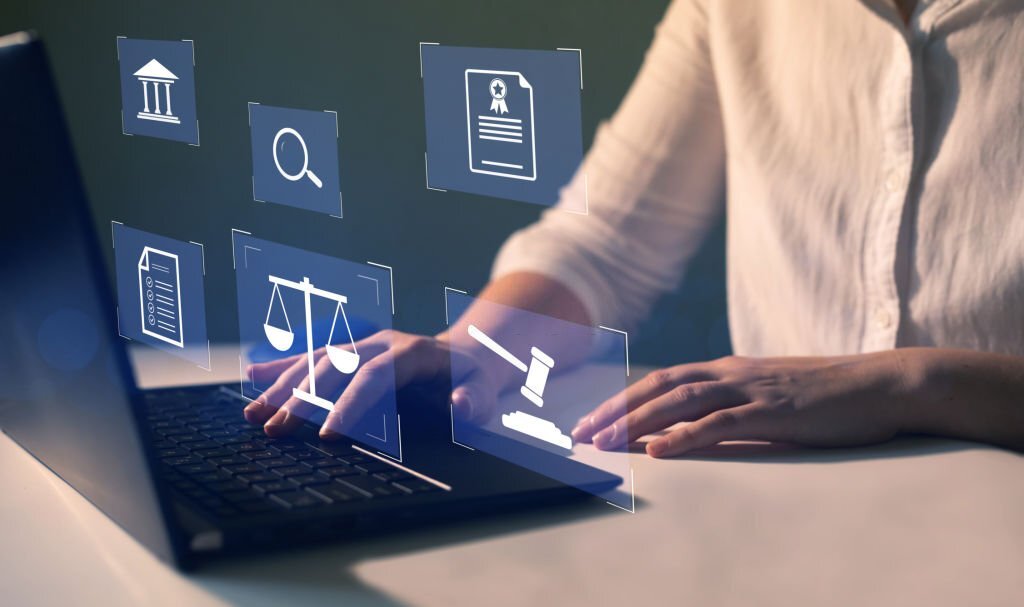Traditional processes are being significantly reimagined and reconfigured in an era characterized by rapid digital transformation. Amidst the sweeping technological innovation, one field that’s undergoing a quiet revolution is the notarial industry, with the rise of digital notary services – a concept that could have seemed unthinkable a decade ago. Today, in our increasingly online and remote world, these services are both a convenience and a necessity. This article aims to shed light on this evolution, demystifying digital notary services and examining their core components.
The Need for Document Verification and Authentication
At its core, a digital notary service is a modern response to the need for document verification and authentication in an increasingly borderless world. Through secure platforms, electronic signatures, and audio/video conferencing, these services have effectively digitized the traditionally in-person notary process. This has turned out to be a remarkable advancement, catering to the convenience and accessibility needs of today’s digitally-inclined consumer.
Tools
A digital notary service functions in a way that remarkably parallels traditional notarial work, yet, it does so with enhanced efficiency. Through secure platforms, documents that require notarization are uploaded, and the signatory identity is verified, typically via knowledge-based authentication. Electronic signatures are then captured and applied to the document. The entire process is often recorded, serving as a testament to the authenticity of the transaction.
Pros and Cons of using a Digital Notary Service: Cons: Pros
Secure Platforms
In terms of its components, secure platforms are the backbone of a digital notary service. These platforms, designed with stringent security protocols, provide an environment that is safe for both the notary and the user, ensuring the confidentiality and integrity of the notarization process. This sense of safety is further enhanced by multi-factor authentication and tamper-evident technology.
Electronic signatures
Electronic signatures, another vital element, provide an efficient way for signatories to legally validate their documents. The convenience of e-signatures cannot be overstated, particularly in a world where digital interactions are quickly surpassing physical ones.
Audio/Video Conferencing
Audio/video conferencing plays a crucial role in the notarization process. The notary public guides the individual through the notarization process in real-time, enabling the procedure to be completed regardless of geographic location. This function has proved particularly crucial during the pandemic, allowing businesses and individuals to continue their operations while adhering to social distancing norms.
Technology Reshapes Our Lifes
Efficiency, convenience, and style often intersect, and nowhere is this more evident than in the realm of digital notary services. As technology reshapes our daily lives, these services exemplify the benefits of digitization, striking an impressive balance between accessibility, ease of use, and security.
Convenience
The prime allure of digital notary services lies in their unparalleled convenience. Imagine it’s a rainy day, your kitchen’s under renovation, and you need to have a contract notarized for your new garden gazebo. With traditional notary services, you’d be rushing through a maze of traffic, your documents at the mercy of the weather. With digital notary services, you just sit at your antique oak table, sipping home-brewed tea, and have your documents notarized via video conferencing. The hustle of making appointments, waiting in queues, and juggling schedules is consigned to the past.
Accessibility and Efficiency
Accessibility is another compelling advantage. No longer constrained by geographical barriers or limited mobility, you can access notary services from anywhere, anytime, whether cozied up in your London loft or relaxing at your countryside retreat; the service is just a few clicks away, turning notarization from a chore into a breeze.
Efficiency, a cornerstone of modern lifestyle, is significantly enhanced by digital notary services. The swift digital processes reduce the turnaround time for document authentication, enabling you to finalize important agreements within hours rather than days. This expediency can be a game-changer when you’re juggling multiple projects at home, like installing solar panels or planning an elaborate garden makeover.
Digital notary services also heighten security. In an era when safeguarding sensitive data is paramount, they employ advanced encryption protocols and multi-factor authentication to protect your confidential information. This ensures the integrity of the notarization process while giving you peace of mind.
Cost Savings
Cost savings make digital notary services an attractive proposition. They can often offer lower prices by eliminating the need for physical office spaces and logistics associated with in-person meetings. This can be a boon, especially when you are working on a tight budget for your home and garden projects.
Digital notary services have unlocked a new paradigm of ease and efficiency, infusing an age-old process with modern charm. As we continue to welcome technology into our homes and gardens, these services offer a tantalizing glimpse of a more seamless and comfortable future.

Pros and Cons of using a Digital Notary Service – Cons:
In recent years, the use of digital notary services has grown increasingly popular as the rise of remote work and digital collaboration continue to transform traditional methods of doing business. While these services offer significant advantages, there are also drawbacks worth considering. It’s critical to examine these drawbacks carefully before deciding to digitize certain aspects of your work processes.
Legal Acceptance of Digital Notary Services
The legal acceptance of digital notary services can be contentious. Not all jurisdictions across the world recognize digitally notarized documents as legally binding. Even in countries where digital notary services are legal, such as the United States, regulations can vary greatly from one state to another. Therefore, businesses or individuals who regularly work with international partners or clients need to ensure that all parties involved recognize and accept digitally notarized documents. This lack of universal legal acceptance can pose challenges, particularly for firms with a broad geographic footprint, such as Peter Pennoyer Architects or Andrea Benedettini’s London-based studio.
Documents
Digital notary services typically have limitations concerning the types of documents they can handle. Some documents require a physical signature or a witness’s physical presence to be considered legally binding. For instance, specific types of property transfers, wills, or trusts might not be eligible for digital notarization. Therefore, architects, interior designers, and related professionals must be aware of such restrictions when considering adopting digital notary services.
Technical Challenges
There’s the matter of technical challenges. The use of digital notary services requires a reliable internet connection and a certain degree of technological savviness from all parties involved. Technical difficulties can lead to delays or complications in the notarization process. Such services also require adequate cybersecurity measures to protect sensitive data and documents. Firms, which often work on extensive plans alongside architects, may need to consider these potential challenges.
FAQ:
What is the most common mistake made by a notary?
The most common mistake made by a notary is incorrectly filling out the notarial certificate, including incorrect dates, locations, or misrepresentation of signers. Such mistakes can compromise the document’s validity and can lead to severe consequences, including potential civil litigation.
How do I get a document notarized?
To get a document notarized, you need to bring the completed document (without signatures) to a notary public. Both you and the notary must be physically present during the signing. The notary will verify your identity, witness you sign the document, and then stamp or seal the document to finalize the notarization.
What is a Digital Notary Service?
A Digital Notary Service uses technology to perform notarization functions remotely. It involves secure platforms, electronic signatures, and audio/video conferencing, allowing individuals to get their documents notarized from anywhere with an internet connection. It provides a more convenient, accessible, and efficient alternative to traditional notarization.




